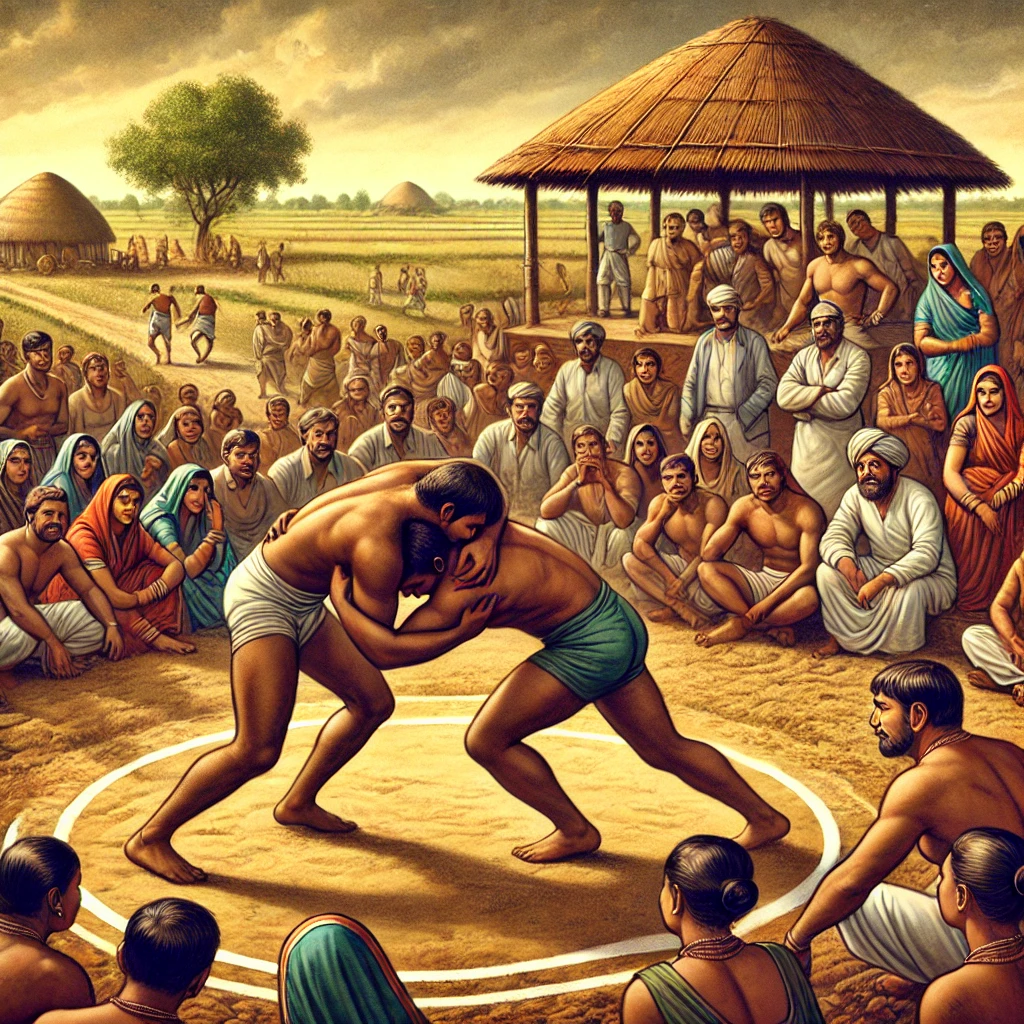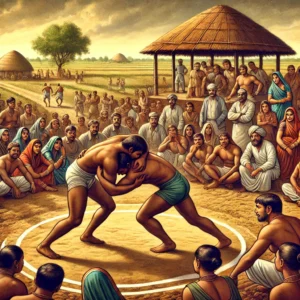How Traditional Wrestling Forms Like Kushti Influence Sports Betting in Rural India
Kushti, also known as Pehlwani, is a form of traditional wrestling deeply embedded in India’s rural culture, especially in states like Haryana, Punjab, Uttar Pradesh, and Maharashtra. This ancient sport, dating back to the Mughal era, is more than just a competition of strength; it represents a cultural tradition that brings together communities. Kushti tournaments, often held in open-air mud arenas known as akhadas, are significant social events where villagers gather to witness fierce competition. For many rural regions, Kushti is not just a sport but a way of life, symbolizing discipline, physical prowess, and honor. As the sport continues to thrive, it has also begun to influence local sports betting markets. Although the betting culture around Kushti remains informal and unregulated in most areas, it is widespread and plays an important role in the local economy. The combination of high stakes, local pride, and community support makes betting on Kushti both a cultural and financial activity for many villagers. The sport’s rising popularity in rural India has made it a focal point for informal betting, providing insights into how traditional sports can drive local economies.
The Cultural Significance of Kushti in Rural India
Kushti has long been a symbol of physical excellence, discipline, and perseverance in rural India. The cultural roots of this traditional wrestling form can be traced back to centuries, with influences from Persian, Mughal, and indigenous Indian traditions. Kushti was once considered a royal sport, patronized by kings and noblemen who organized grand wrestling matches to display the strength and skills of their warriors. Today, Kushti continues to thrive, especially in rural regions, where it serves as a vital connection to tradition, community identity, and pride.
Historical Roots of Kushti
Kushti’s history is interwoven with India’s broader martial traditions, where wrestling was considered a key component of a warrior’s physical training. During the Mughal period, the sport gained prominence, with akhadas being established across northern India to train wrestlers. The wrestlers, known as pehlwans, were not just athletes; they were cultural figures, representing ideals of masculinity, discipline, and strength. The training regime of a pehlwan, which includes rigorous physical routines, a controlled diet, and meditation, reflects the holistic approach of ancient Indian sports, combining body, mind, and spirit.
Kushti as a Community Event and Its Role in Rural Society
In rural India, Kushti tournaments serve as major social gatherings. These events bring together entire villages, with families, elders, and children attending to watch local heroes compete in the akhadas. The community often invests emotionally in these competitions, supporting their local wrestlers, who become representatives of their village or town. The matches themselves are imbued with ritual and respect, with wrestlers performing traditional ceremonies before entering the ring. For many rural regions, Kushti is more than just a sport; it is a way of preserving and celebrating cultural identity. The communal nature of these events also paves the way for informal betting practices, where spectators place bets based on local rivalries, regional pride, or the perceived strength of the competitors.
How Kushti Tournaments Have Become Platforms for Local Betting
Kushti tournaments are increasingly becoming platforms for local betting activities, drawing the attention of villagers and small-town bettors alike. Although these betting practices are informal and often unregulated, they have become a common occurrence at Kushti events. The nature of the betting can range from small wagers between friends and families to more organized pools involving larger sums of money.
- Organized Kushti Competitions and Informal Betting Circles
Most Kushti tournaments are organized at the village or district level, and with the growing number of competitions, betting has naturally found its way into the sport. Local organizers may unofficially endorse betting circles, where villagers and spectators place their bets on favored wrestlers. These bets are usually based on the reputation of the wrestlers, their past performances, and the opinions of community elders who often play the role of unofficial bookmakers. - Influence of Local Wrestlers on Betting Odds
The presence of well-known local wrestlers can greatly influence the betting odds at Kushti tournaments. In many cases, wrestlers who have won multiple competitions or come from well-respected wrestling families tend to attract larger bets. Similarly, newcomers or less experienced wrestlers might be seen as underdogs, creating an opportunity for high-stakes betting. The unpredictability of Kushti matches, where a single maneuver can decide the outcome, adds to the excitement and the risk for bettors.
This dynamic has made Kushti tournaments an integral part of local betting culture, with each match providing a new opportunity for wagers and speculation among the audience.
The Role of Regional Variations in Betting on Kushti
The cultural and regional diversity of India plays a significant role in how Kushti is practiced and, in turn, how betting on the sport is conducted. Different regions of India bring unique styles and approaches to the sport, influencing both the tactics used by wrestlers and the betting strategies employed by spectators. Understanding these regional differences is key for bettors who want to make informed wagers at Kushti tournaments.
- Influence of Wrestler Techniques Across Different Regions
The techniques and styles used by Kushti wrestlers can vary greatly from one region to another. Wrestlers from Haryana, for example, are known for their strength-based grappling techniques, while those from Maharashtra might emphasize agility and speed. This diversity in techniques adds an interesting layer to the betting scene, as spectators often base their wagers on how well a wrestler’s style matches up against their opponent. Bettors who are familiar with regional wrestling styles and tactics have an advantage when placing bets, as they can anticipate which wrestler’s approach will prevail. - Popular Kushti Competitions in Various States
Different states host prominent Kushti competitions that attract both top wrestlers and enthusiastic bettors. In Maharashtra, the traditional wrestling festival of Kushti Mahotsav draws large crowds, while Haryana’s Bharat Kesari Dangal is another prestigious event that sees high-stakes betting. Bettors often track these competitions throughout the season, following their favorite wrestlers and placing bets based on their performance in previous matches. - Role of Local Heroes in Shaping Betting Trends
Local heroes, or celebrated wrestlers, often play a crucial role in shaping the betting odds at Kushti tournaments. Wrestlers who have earned a name for themselves within a particular region tend to draw larger bets and are viewed as favorites by their home crowd. These wrestlers are often seen as representatives of their region’s strength and skill, and their success can inspire loyalty among local bettors. For this reason, bets placed on local heroes tend to dominate the betting landscape, particularly in rural areas where communities rally behind their hometown wrestlers.
Challenges of Formalizing Betting in Kushti Tournaments
While betting on Kushti is widespread, particularly in rural India, the practice remains largely informal and unregulated. This creates several challenges for the formalization of betting in Kushti tournaments, especially given the sport’s deep cultural roots and the lack of clear legal frameworks governing sports betting in India.
Legal Barriers to Betting on Traditional Sports
India’s gambling laws are complex, with most states adhering to the Public Gambling Act of 1867, which prohibits running or being in charge of a public gaming house. While some states, like Sikkim and Goa, have legalized and regulated betting on certain sports, most of India continues to operate under a ban on sports betting. This legal ambiguity makes it difficult to formalize betting on traditional sports like Kushti. Additionally, Kushti tournaments are often community-driven events, making them less accessible to the formal betting industry, which typically targets more commercialized sports.
Potential for Regulation and Organized Betting
Despite the challenges, there is potential for regulated betting in Kushti tournaments. With the rise of online platforms and mobile betting apps, there is an opportunity to bring more structure to betting on traditional sports. Legalized betting, if properly regulated, could provide a source of revenue for local communities, helping to fund Kushti tournaments and support the sport’s growth. However, this would require significant changes in both legal frameworks and community attitudes towards betting, particularly in regions where Kushti is still viewed primarily as a cultural practice rather than a commercial enterprise.
The Growing Popularity of Kushti and Its Impact on Rural Betting Markets
As Kushti continues to grow in popularity, its influence on rural betting markets is becoming more pronounced. The sport’s revival through television broadcasts and high-profile tournaments has brought increased visibility, drawing attention from both local and urban bettors. While Kushti has always had a loyal following in rural India, its rising profile is introducing the sport to new audiences, expanding the potential for betting markets.
The traditional nature of Kushti, combined with its fast-paced and unpredictable matches, makes it an appealing option for bettors who are looking for excitement and the chance to win big. The sport’s cultural significance also plays a role, as many bettors place wagers not just for financial gain but also out of a sense of community pride. In this way, Kushti betting is more than just a pastime; it is an expression of local identity and support for hometown wrestlers.
As Kushti’s reach continues to expand, so too will its impact on the betting landscape in rural India, potentially leading to the formalization and growth of a more structured betting market in the future.








